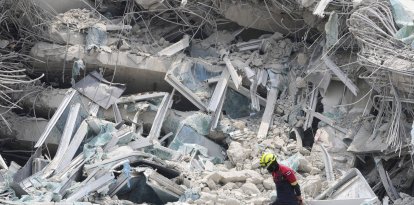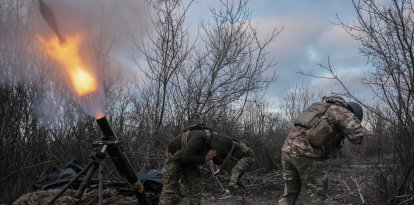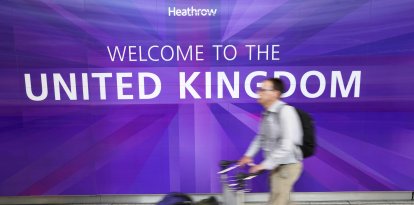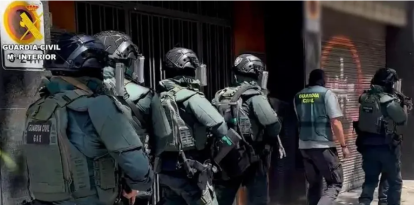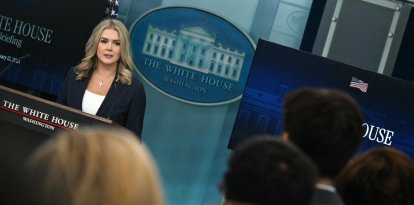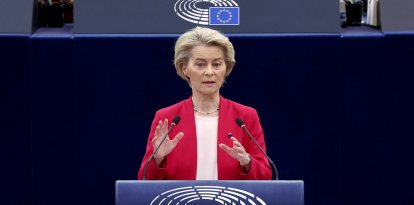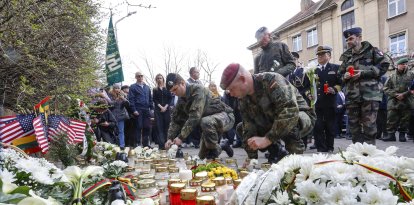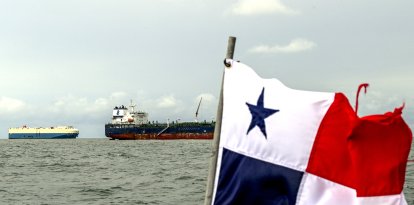Siege of Paris: Farmers block nine highways around the French capital and wait for more reinforcements
Farm workers are up in arms against the French Government and intend to completely block the country's largest food market, Rungis.
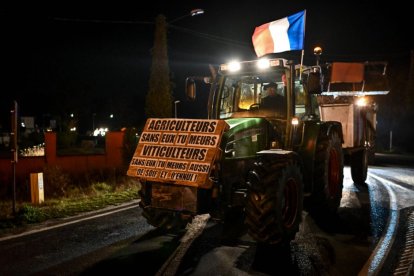
(Cordon Press)
Ending the supply to the French capital is the objective of the new day of protests being carried out by farmers in France. Demonstrations that have been felt throughout the country since last week and that the coordinating platforms are now moving to the capital to increase pressure against the Government and the political class.
Farmers organized by the National Federation of Farmers' Unions (FNSEA) intend to cut off supplies to the Rungis International Market, the Belly of Paris, which is located south of the city and near Orly airport. In front of the farmers is the French Minister of the Interior, Gérald Darmanin, who warned the protesters not to cross the red lines that would disrupt the functioning of the State's emergency infrastructure, such as the international airport and the large food market.
Blocked roads
This Tuesday the French State services report that at least nine highways around Paris are closed and that together with other more secondary ones they make up a total of at least thirteen. Some French media predict that a direct clash between police and protesters is imminent.
However, Minister Darmanin asked for "moderation" from the law enforcement forces deployed to try to stop the advance of long convoys of tractors that go from the peripheral provinces to the French capital. The Ministry of the Interior and local prefectures mobilized nearly 15,000 police officers and gendarmes to control the more than 10,000 farmers with their utility vehicles that took to the country's roads.
The peasants' strategy consists of collapsing the country's arteries thanks to their tractors and their loads. They use them to set up barricades when they are not on the road to Paris, as they did on Tuesday. Some of these convoys were blocked by law enforcement, according to farmers, who are looking for alternative routes or breaking police cordons with their utility vehicles. However, an important convoy coming from Agen, in the southwest of the country, is unable to advance or avoid the blockades of the French gendarmerie.
Negotiations with the Government
The president of the National Federation of Farmers' Unions (FNSEA), Arnaud Rousseau, took time to speak to Europe 1 radio this Tuesday to comment on the latest progress in negotiations with the Government. The night before, Rousseau held a meeting with newly appointed Prime Minister, Gabriel Attal. Regarding this meeting, Rousseau assured that the negotiations are open and that his formation has high expectations of the French Government.
The president of the FNSEA said he expected "a software change" as well as "symbolic emergency measures." "What we need to be successful and what we need to ensure that people come home, signs that we can leave," he declared. Gabriel Attal seemed "willing to do so," and "go further on all issues," said Arnaud Rousseau. "We will have to see how things are translated into laws and put into practice," he continued, referring to "tensions on the ground" and warning of outbreaks and violence.
The needs of the rural world
The environmental regulations of France and the European Union are at the heart of the issue for farmers. They ask the first to reverse the "loss of food sovereignty" and the second to review the "very philosophy of the Green Deal" - the bloc's strategy to achieve climate neutrality in 2050 -. Along with this, they also demand an end to increasingly narrow profit margins for small producers, who in many cases do not achieve a decent wage in negotiations with large distribution chains.
RECOMMENDATION

